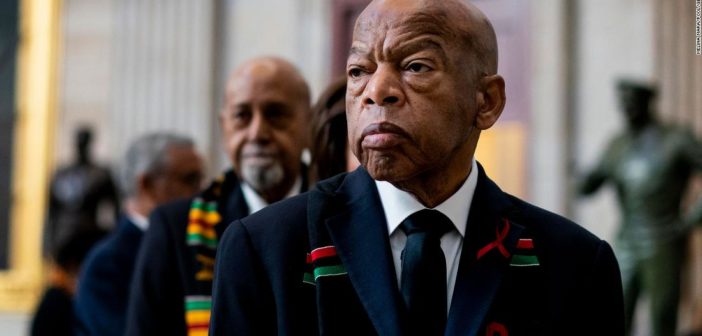By: Haley Robinson, Editor-in-Chief
John Lewis (Feb. 21, 1940 – July 17, 2020) was one of the Big Six leaders of the 1960’s civil rights movement. Born in Alabama, he felt firsthand the sting of oppression and racism. Inspired by the late Martin Luther King Jr., Lewis leapt into the Civil Rights movement, becoming the youngest speaker at the March on Washington.
Lewis was raised in an era of racial injustice and segregation helping his sharecropper parents make ends meet. In his younger years, he was severely disappointed that the infamous Brown v. Board of Education ruling that schools should be desegregated did not affect his personal school life. Lewis was an active follower of the movement and was deeply inspired by King’s sermons which lead him to seminary school.
After completing seminary school, where he learned the art of peaceful protests, Lewis began his career in activism organizing sit-ins at local segregated establishments. He was arrested multiple times during these demonstrations but, he got back up, more determined to speak out against injustice. Through his persistent commitment to the movement, he went on to join the infamous Freedom Riders.
Lewis didn’t stop at boycotts and sit-ins, he took his fight to the steps of Washington D.C. as one of the Big Six organizers of the March on Washington.
Lewis’s speech declared, “We all recognize the fact that if any radical social, political and economic changes are to take place in our society, the people, the masses, must bring them about.”
The aftermath of the March on Washington contributed to the passing of the Civil Rights Act of 1964, which prohibited the discrimination of peoples based on race, religion, color, or sex. This act didn’t change the way African Americans could vote in the South and Lewis wanted to spotlight this disparity. He organized the march on Selma, more commonly known as Bloody Sunday, due to the police brutality the protestors experienced during the demonstration.
Lewis was devastated by the assassinations of King and Kennedy; he channeled his sorrow into becoming the Director of the Voter Education Project which helped millions of minority voters register to vote. His accolades also included running for office and being elected to the House of Representatives in Georgia. Lewis became one of the most highly respected and revered congressmen for his work in civil rights, healthcare reform, gun reform, and education.
Since his passing in July of this year due to stage four pancreatic cancer, Lewis leaves behind a legacy. Before his death, he co-authored a series of graphic novels recounting his work during the Civil Rights movement. His work in Congress is considered unrivaled – he has earned numerous honors and awards including the Presidential Medal of Freedom, the NAACP’s Spingarn Medal, and sole Profile in Courage Award, created by John F. Kennedy.





